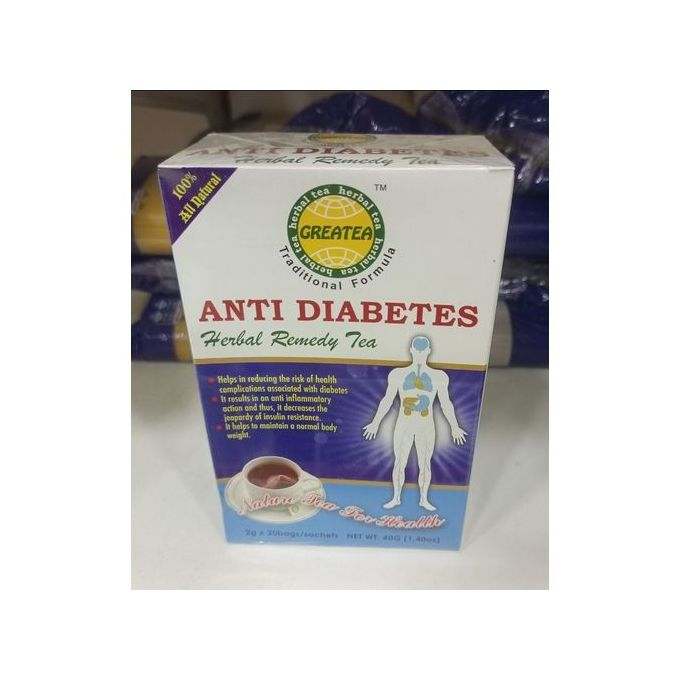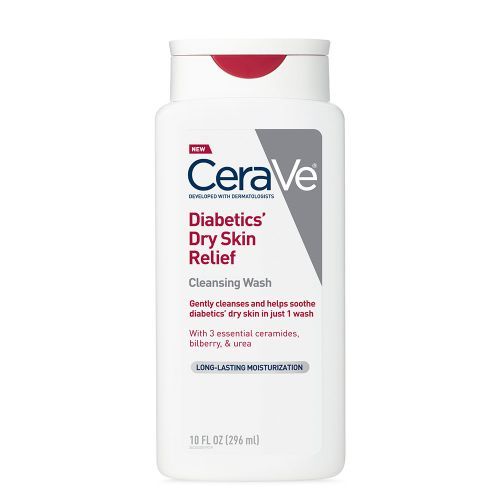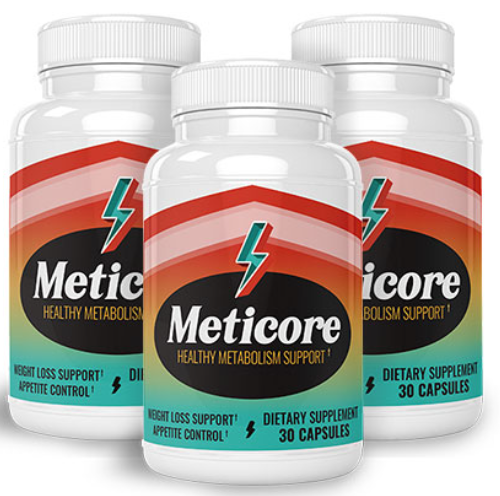lot of my training has been in the holistic health world, and many of my colleagues like to talk about the mind-body-spirit connection. They say that without incorporating mind, body, and spirit, you can’t be whole. That’s all well and good, I suppose, and I agree with it in theory, but I’m also not exactly sure what it means. How do you do it? As an aggie (my agricultural training rears its head again), I’ve formulated my own version of this concept. Instead of mind-body-spirit, I like brain-flesh-hormones. It’s not as pretty. It’s definitely geekier. But to me, it makes more sense.
First, the brain, or mind, is essential for wellness. How do you think about food? How do you decide to create a healthy relationship with food? What choices do you make, consciously, in your life about your health? How do you manage stress? As we discussed in the last article, you have to have your head screwed on straight if you are going to change your life, your relationship to food, and your health paradigm.
Flesh is next. You need a strong structure to thrive—dense bones, strong muscles, clean blood, and supple skin. You have to act to preserve and maximize your physical body if you want to feel healthy and strong, as well as burn, build, or store energy according to your actual physical needs—the needs of the flesh.
Finally, hormones are like spirit—you can’t see them, but they have a dramatic eect on everything you do, everything you feel, everything you are. The secretion of hormones is what causes everything in your body to be set into motion. They cause your heart to beat and dictate the storage and release of energy in the body. And the proper balance of hormones plays a huge roll in having a fast metabolism.
Another unique thing about the hormones is the way they react to your environment or outside world. For example, if you meet a handsome man or a beautiful woman, your heart may go pitterpat, or if you come across a scary man or an irate woman, your heart may race and feel as if it is in your throat. Those are all hormone interactions that signal a perceived idea to the brain and cause a physiological, or body, reaction. We want to control some of the hormone interactions that are affecting your weight and health, so that your body is working at its optimal.
In order to have wellness, you need all three—brain, flesh, and hormones—to be working in perfect harmony. In the last chapter, we talked about changing your mindset, and rethinking your approach to food and dieting. Now let’s look at the other parts—the flesh and the hormones. You know what you think, but you don’t necessarily know how your liver works, what your thyroid is doing, or whether your hormones are balanced.
But you should. Your body is like a house—a temple, as they say—and you should know what’s going on inside this most precious structure, especially in terms of how it relates to what you can actually do to improve your health and achieve a fast metabolism. Let’s begin with the five major players.
THE FIVE MAJOR PLAYERS ARE;
1. Your Liver
2. Your Adrenals
3. Your Thyroid
4. Your Pituitary
5. Your Body Substance: white fat, brown fat, and muscle
YOUR BODY’S FIVE MAJOR PLAYERS
It’s time to get a little more specific about what’s really going on inside of your body when you have a slow metabolism. Don’t worry; I’m not going to attempt to give you an anatomy class. There are huge textbooks to cover that subject. However, throughout this book I will say things like, “This is liver food” or “We are doing this to support the adrenals” or “Think of all the T3 sites getting excited as you eat this.” And I want you to know what I’m talking about. I’m going to ask you to hang in there while I reveal a little bit of my science- nerd side.
I want you to understand what your body is doing so together we can x what’s not working for you—and for it. Stay with me all the way, be an active participant in this process, and when you’re done with this chapter and this book, you’re going to understand your body a lot better. You’ll also have all the tools you need to create the healthy, sleek, optimally functioning body that nature intended for you.
YOUR LIVER
Your liver is vital and essential to keeping you and all your bodily systems up and running. Over 600 known metabolic functions happen via the liver, and virtually every nutrient, every hormone, every chemical must be bio-transformed, or made active, by the liver. It’s your workhorse, and without it, you’d buy the farm. Your liver creates bile, a nasty-sounding but powerful solution that breaks down fats (and the nitrites and nitrates in your deli meats and bacon).
Hormones get secreted from glands all over your body, but it is your liver that breaks down the hormones and makes them biologically active so they can go to work for you. It ips the light switch once you’ve put in the bulb. Your liver inuences your electrolyte balance, swelling and inammation, dehydration, bloating, and water weight. It also acts like a lter for the blood that travels through the digestive tract.
It converts B vitamins into coenzymes, and metabolizes nutrients such as proteins, fats, and carbohydrates. Your liver also manufactures carnitine, which takes fat and escorts it to the mitochondria—your body’s little power centers or fat converters. The amount of carnitine in your system dictates how much fat can be delivered and incinerated.
This simple relationship between the liver and the mitochondria can inuence up to 90 percent of your fat burn, dictating your metabolic rate. The faster and more eciently you produce carnitine in your liver, the faster and more efficient your metabolism is. The food you eat must feed your liver rather than tax it. If you don’t feed your liver appropriately and frequently to stimulate it to its most ecient functioning, everything else will get disrupted.
Because the liver is so closely linked with metabolism, it is one of the most crucial organs we’ll be nurturing with the Fast Metabolism Diet.
YOUR ADRENALS
Your adrenals are small glands that lie on top of your kidneys in your lower back, and they secrete hormones that regulate your body’s response to stress of all types: physical, emotional, environmental, and mental. Your adrenals are responsible for the hormones that allow your body to adapt either functionally or dysfunctionally to changing situations. These hormones determine how you access fuel in your body and what you do with the fuel or food you consume. Do you store it as fat? Or do you burn it as energy? Let’s say you have to pull an all-nighter, getting changes on your book back to an editor.
Do you continue to feed yourself every three hours, fueling your body, your hormones, and your brain, or do you stop eating at 6 P.M.? That’s what you would normally do, even though you aren’t sleeping. Answer: When you are awake and working, you have to keep eating. Otherwise, you leave your body without fuel, and then it thinks you are starving and before you know it, your metabolism is slowing down.
Some of the metabolism-specific hormones the adrenals release include cortisol, adrenaline, aldosterone, and epinephrine. These are released in response to stress and/or pleasure. The stressors could be as major as a car accident or as minor as missing a meal. The adrenals respond to the acute stress of a disaster just as they respond to the chronic stress of a bad relationship, an unpleasant work environment, or a taxing family situation. The secretion of these stress hormones regulates the release of glucose or sugar from the muscle and liver cells, to either stimulate or slow down your body’s metabolic rate.
That means this process is nutrient-dependent, or dependent on the food you do or don’t eat. When you experience stress, the surge of hormones you experience will be influenced by what you’ve just been eating. If you nourish your body during times of stress with the right foods, you will not store fat as much as you burn it. To put it more simply, stress pulls nutrients from the body from places where you can’t afford to lose them (like muscle). If you are eating a healthy, nutrient-rich diet, your body won’t have to resort to this. You’ll be able to handle the stress. If, however, you aren’t eating enough, or enough of the right food, your metabolism will slow down, due to a complex chain of chemical reactions.
If you are eating the right food at the right time, you will feed your adrenals so they can survive the stress without resorting to a slowed metabolism. Adrenal exhaustion can occur when a body has been under significant stress for a long period of time. This occurs because the body has been chronically secreting stress hormones that are meant to be preserved for quick crisis situations. You know that surging feeling you get when you are startled or scared? That’s a hormone surge.
They should be saved for a true emergency, but many of us live and survive on the energy from these hormones, day in and day out. That is not the way our bodies are meant to work! When stress hormones constantly surge, the body is constantly in a state of crisis. One of the things that occurs in this situation is that the hormones slow the burning of fuel because the body sees no end to the exhausting demand. Adrenal exhaustion is a problem I’m seeing more and more often in my clinic. Exacerbating this situation is decreasing food quality and increasing environmental chemicals. That’s why it’s so important to feed yourself clean (i.e., organic whole) food as much as you can. Your adrenals will thank you. Preserve your adrenals! Soothe them with this diet and stress management.
SCIENCE-GEEK MOMENT
Let’s take a closer look at exactly what happens when your body perceives stress. First, the hypothalamus (an almond-sized gland in your brain) stimulates the pituitary gland (a pea-sized gland at the base of your skull) to secrete a hormone called ACTH. ACTH stimulates your adrenals (those little guys in your lower back, just above your kidneys) to produce cortisol. Still with me? The cortisol, in turn, stimulates the hypothalamus, part of the brain, to tell the pituitary, part of the brain, to slow the production of TSH (thyroid- stimulating hormone). TSH lowers the output of other fat-burning T3 thyroid hormones, which cause excess formation of fat-storing, metabolism-slowing RT3 hormones.
In the absence of proper nutrition, this whole process causes the adrenals to stimulate aldosterone, another hormone, to break down the muscle for fuel (in the form of glucose stored as glycogen), and then to act with RT3 to aggressively convert the glucose into fat, to be stored. This is not looking good for you and your efforts to lose weight and feel good! If you have an ample supply of amino acids (such as taurine) from protein, as well as minerals like iodine, complex sugars, and a healthy enzymatic liver function (which is dependent on nutrients from food), then instead of cannibalizing muscle for crisis fuel, you can maintain a healthy cortisol secretion response.
This will cause T4 to be converted to biologically active, metabolically aggressive, fat-scorching T3 instead of that pesky RT3 that causes so many problems when you make too much of it. Your body will act as a lean, mean fighting machine rather than a fight-or-flight mess of panic and fat storage.
YOUR THYROID
The thyroid is a metabolic superstar! It is a buttery-shaped gland located at the center of the throat, and although I know I’m mixing my metaphors here, I think of it as your body’s furnace. The pituitary gland in the brain (which will be discussed more thoroughly in the next section) is like the thermostat, and the hypothalamus in the brain is like the guy controlling the thermostat. But the thyroid is the furnace and the hormones it produces, like T3 and T4, are the heat. When it gets too hot, its thermostat has to be turned down, and when too cold, its thermostat gets cranked up.
If any of these three mechanisms isn’t working just right, then the body’s temperature—a direct reaction of metabolism, or the rate at which the body is burning energy—will be off. The house will be too hot or too cold. The thyroid performs many metabolic tasks via many functions in the body, including the extraction of iodine from food to produce the thyroid hormones T3 and T4. The T3 and T4 travel through the bloodstream and influence the metabolism through the conversion of oxygen and calories to energy. This is huge! This is what you want—an efficient furnace fueled by food and heating your house so it’s toasty and comfortable. T3, in particular, is the superhero of a fast metabolism.
T3 possesses approximately four times the metabolic hormone strength of T4. But the thyroid has a dark side—a hormone called Reverse T3 (RT3). I introduced you to RT3 in the last chapter, but I want to bring it up again because it’s so important in the process of metabolism repair. RT3 is sort of like that dysfunctional family member who shows up at Thanksgiving but doesn’t behave and inevitably ruins everybody’s dinner. It’s a misshaped thyroid hormone that isn’t very efficient in stimulating the metabolism, and in fact, it blocks healthy T3 functioning. RT3 doesn’t mean to mess things up for you and your plans for those skinny jeans.
It’s actually a smart response to prevent starvation. The problem is, when you diet, you know you aren’t really starving (even though on some diets it might seem that way), but your body doesn’t have the 411. In situations when you are experiencing chronic stress, certain disease processes, or nutritional deprivation, RT3 heeds your body’s “Red Alert!” This signals the RT3 to bind to the T3 receptor sites and run interference so T3 can’t do its job. RT3 throws a big bucket of water on your metabolic re, in a panicked effort to save your fat stores so you don’t die from what surely must be a catastrophic event or famine.
The result is that your body quits burning and starts storing. Sometimes there are serious problems with the body’s thermostat, such as Hashimoto’s disease, Graves’ disease, or a body that is producing thyroid peroxidase (attacking its own thyroid). These thyroid-based diseases are often undiagnosed and can play a very large role in an extremely slow metabolism. The Fast Metabolism Diet is designed to nurture and coax the right hormone production from your thyroid. But because things can go wrong with the thyroid, I strongly believe it is important to look at the blood chemistry of the thyroid to be sure it’s functioning properly.
A lot of women’s health books talk about the thyroid because hypothyroidism is an often undiagnosed condition that can cause a slow metabolism, weight gain, hair loss, brittle nails, constipation, headaches, and fatigue. I always recommend my clients get thyroid tested.
YOUR PITUITARY
I think of the pituitary gland as the body’s thermostat. It secretes hormones that regulate or adjust the actions of many other hormones in your body. For example, the pituitary stimulates the thyroid to secrete its hormones with thyroid- stimulating hormone, or TSH. If the TSH level is high, that means the thyroid is requiring a lot of motivation or pushing to get its job done (hypothyroid).
Imagine the pituitary yelling at the thyroid: Get going, you slacker! Move it or lose it! If the TSH is normal, all the pituitary has to do is speak in a normal voice: Keep up the good work. If the TSH is very low, then the thyroid gland may be overactive (hyperthyroid), and the pituitary may only whisper. Of course, as I’ve explained earlier, if the thyroid is producing a lot of fat-storing RT3, the pituitary may perceive this as plenty of thyroid hormone, and may only whisper when it should be yelling. For this reason, a normal thyroid test isn’t necessarily indicative of optimal thyroid function, as it won’t separate out the RT3 from the furnace-stoking T3.
The pituitary also regulates sex hormone production, such as estrogen, progesterone, testosterone, and DHEA. The regulation of each of these, as well as the adrenal hormones, is crucial to the health of the body and speed of the metabolism. So the pituitary is not only the furnace’s thermostat but also the control centre for the huge ecosystem called your hormones.
YOUR BODY SUBSTANCE
The final key player that directly influences the metabolism is your body substance—how I refer to the fat, bone, connective tissue, and muscle in your body. The body stores the majority of your reserve fuel in either muscle or fat. Because muscle is constantly contracting, relaxing, beating, pushing, and pulling, it takes a lot of fuel to create and maintain it.
This is why they say muscle consumes more calories, or energy, than fat. Fat just sits there. Have you ever seen it do anything besides op over your waistband or jiggle around on your thighs? Fat really doesn’t do much but hold on to fuel, and therefore it takes very little fuel or calories to maintain it. (And remember, if you don’t eat or provide outside fuel, the body will actually break down muscle and store some of that fuel as even more fat!).
There are two basic types of fat in the body: white fat and brown fat. For decades scientists believed that brown fat was only present and important in infants and small children, to help keep them warm and maintain their body temperatures. It is now believed that even though it exists in very small amounts in adults, brown fat plays a crucial role in the regulation of blood sugars and the metabolism.
Brown fat is brown because it is rich in mitochondria (remember those little parts of the cell that burn fuel and produce energy?). The more obese you are, the less brown fat you will have and the more white fat you will have in storage (the fat you don’t like when it jiggles). This is just another sick joke on your body, because brown fat burns fuel nine times faster than white fat.
So why does your body seem so in love with white fat, hoarding it like a miser? It’s because your body thought it might need the fuel reserves! (Thanks a lot, chronic dieting!) White fat’s major purpose for being is for long-term fuel, and your body will make a Herculean effort to hold on to it, just in case of disaster. White fat isn’t all bad.
In fact, you need it and it serves a very important function. White fat is the fat under your skin (subcutaneous fat) and around your organs (visceral fat). It is designed to maintain body temperature, protect the organs, and act as an energy storage site for future need. White fat also secretes some hormones and regulates the output of others, and these hormones communicate directly with the adrenals, the pituitary, and the hypothalamus.
However, when your metabolism slows down, your body goes into super white-fat production mode, hoarding fat like some people hoard newspapers, shoes, junk mail, or stray cats. You can literally be buried alive with all this saved energy in the form of smothering white fat. Brown fat, on the other hand, is a thermogenic or furnace fat.
Unlike white fat, instead of storing energy, brown fat seems to prefer to burn through it. It also helps stimulate the metabolism by warming the body, increasing blood ow, and making it easier to deliver nutrients to the white fat. Brown fat helps regulate your cholesterol and triglycerides, transports waste to the intestines for elimination, synthesizes proteins, and stores and metabolizes fatty acids used for energy.
Brown fat also metabolizes and stores carbohydrates, storing them as glucose for your red blood cells and brain. Interestingly, in adults, brown fat is typically located only behind the shoulder blades up and around the neck and under the collar bone. This is also where I and many of my clients say they feel or hold their stress.
Stress hormones directly aect brown fat activity. Brown fat can be your best friend when you want to enhance your metabolism because, through its hormone activity, it releases a ton of energy from food. Brown fat also seems to be activated by cold, while the release of stored energy in white fat seems to be stimulated by heat. Both the burn of energy in brown fat and the release of energy from white fat are supported by healthy thyroid function.
Let’s revisit the ve major players for a moment, because they are the keys to using food to sculpt your body the way you want it. Feeding your liver, soothing your adrenals, maximizing pituitary and thyroid function, and tweaking your fat balance—all of these are the cornerstones of a Fast Metabolism. Simply changing the way you eat will mobilize and facilitate healthy hormonal responses to stress, boost the metabolism, and maximize the body’s efficient and balanced distribution of fat, water, and muscle.
In a very short time, you’ll be able to behold the amazing power of food, right in your own mirror! YOUR DOCTOR’S ROLE IN STOKING YOUR METABOLISM “How do I know I have a slow metabolism?” This is one of the most common questions I get, and it’s the key reason I like my clients to get some basic tests before they embark on the Fast Metabolism Diet, to see just how out of balance they are. The tests aren’t necessary to benet from the Fast Metabolism Diet, but they can help you to understand exactly where you are and how far you need to go. I recommend these lab tests with a caveat: they are just one part of that peek into the window of the house that is your body.
Imagine you’re shopping for a new home. One day, you see a cool house, and you wonder if you should call the Realtor and get a tour of the inside. Before you bother to make the call, maybe you sneak into the yard and take a peek through the window. You see a beautiful living room with vaulted ceilings, hardwood floors, and lots of light. Great! But you can’t view the whole house. The upstairs might be completely trashed, with squatters and rats and grati on the walls. Or, the upstairs might be ne. You can’t tell, because you can’t see everything.
You can’t learn everything about your health from lab tests, but you can get a preliminary picture. Also, keep in mind that even if all your tests look great, if you are overweight, out of shape, and eat a poor diet, then your body is doing the very strenuous job of maintaining normal body chemistry under adverse circumstances. I’ve had patients come to see me, and they show me their labs and they say, “Look, everything is normal. I’m ne! The doctor sent me on my way.”
I can’t help saying, “But look! You aren’t fine! Just look!” It’s so frustrating when you are overweight and your doctor tells you, “Your numbers are great, you’re ne; see you next year.” Some of my clients tell me how angry this makes them. “Are you looking at me?” they want to yell. “Do you not see me? I am manifesting metabolic dysfunction on my ass!” And they are.
So just remember: labs are a peek in the window, but they aren’t everything because you don’t need a measurable disease to have a slow metabolism. Also, you can have signicant symptoms and fall in the “normal” range. You might have perfect labs and a trashed metabolism. If you have more than 10 pounds to lose, your metabolism isn’t what it could be. So why bother to test at all? Because some basic tests can alert you to health problems you might not know about, or might tell you that you’re doing pretty well and you really only need a little kick in the pants.
Labs aren’t the whole picture, but they can provide you and your doctor with some helpful hints. And speaking of your doctor, this is the time to partner with a doctor who is open to your eorts to lose weight and boost your metabolism, if you don’t already have one. There are many great doctors out there. I’m in a unique setting in my oces because I work with some of the most amazing doctors every day, and I have access to a lab right in my clinic.
This might not be so easy for you. If your doctor balks at doing tests, tell him or her that your nutritionist requested them. Some labs will now do tests for patients without a physician referral, so that’s another option, if it’s available to you. None of the tests I mention below are particularly expensive or unusual.
TEAM BUILDING
When I first began practicing in the natural health industry, nutrition fell into the category of “alternative medicine,” and I noticed a real us vs. them mentality on both sides of the aisle—from both holistic practitioners and conventional doctors.
I never subscribed to this kind of thinking, and fortunately, I see it changing. More conventional doctors are open to holistic methods, and more holistic practitioners partner with conventional doctors in the interests of their patients. I always felt that everyone and anyone could potentially be a partner in getting my clients on the road to health.
One of my mentors, Dr. Jackie Fields, used to say, “It’s in the patient’s best interest to have a clinic without walls.” She meant that if you don’t have the answers in house, go out and find someone who does. Create a healthcare team that supports your quest for a healthy and fast metabolism, solid nutrition, and stress relief. You’re the team captain. Go team! The main thing I look for in tests, beyond abnormal numbers, are numbers that indicate a fast metabolism because “normal” test results are typically pretty wide.
Knowing your numbers will tell you whether you have the chemistry of a person with a slow metabolism, or the chemistry of a person with a fast metabolism, or whether you fall somewhere in the middle. Keep in mind that I am not a doctor, so my opinion of what test results indicate a fast metabolism may dier from what your doctor would say. However, I’m not some random person telling you to bug your doctor for pointless tests.
These are the numbers I use with my clients at the clinic, and most of them are referred to me by physicians. I request these tests for my patients every day, and doctors often ask for my input on test results because I look beyond “normal” for ideal metabolism numbers, specically when wanting to facilitate healthy weight loss. These are the tests I’d like you to ask your doctor to give you:
THYROID: Ask your doctor to test your TSH, T3, T4, and Reverse T3. Don’t forget to ask for the Reverse T3 (RT3), as it isn’t always part of a typical thyroid panel. These numbers can uncover thyroid issues you might have, but there are a few additional ones such as TPO or Anti Thyroid Antibody they might want to consider if worried about Hashimoto’s or Graves’.
If these are o, it can tell you even more about your overall health and how crucial it is to nurture your body and its metabolism. If you have a fast metabolism, your numbers should look like this, so this is what we will be aiming for:
YOUR BODY’S CHEMISTRY
NORMAL FAST METABOLISM
THYROID PANEL
TSH .4–.4.5 mIU/L Under 1.0 mIU/L
T3 2.3–4.2 pg/ml 3.0–4.2 pg/ml
T4 0.7–2.0 1.5–2.0
Reverse T3 90–350 pg/ml 120 or lower pg/ml
LIPID PANEL
Cholesterol 125–200 mg/dl 165–185 mg/dl
Triglycerides Less than 150 mg/dl 75–100 mg/dl
HDL (“good” cholesterol) Greater than 46 mg/dl 70 or higher mg/dl
LDL (“bad” cholesterol) Less than 130 mg/dl 100 or lower mg/dl
SUGAR PANEL
Hemoglobin A1C Lower than 6.0 Lower than 5.4 Fasting Blood Sugar 65–99 mg/dl 75–85 mg/dl*
ACCESSORY HORMONES
Cortisol 5–23 mcg/dl 8–14 mcg/dl
Leptin 18 10–12
*If it’s into the 70s, you are burning fat like crazy!
LEPTIN LESSON Leptin is a hormone that promotes white fat storage, and is typically stimulated by fat- cell production, creating a vicious cycle of fat production.
RELATED POSTS
Metabolism! How Did We Get Here
Metabolic Myth #1: If I Could Just Eat Less, I’d Finally Lose
Weight
Metabolic Myth #2: If I Like It Too Much, It Can’t Be Good For
Me … Or My Waistline
Metabolic Myth #3: Losing Weight Is Simply Calories In, Calories
Out
Metabolic Myth #4: Desserts Make You Fat
Metabolic Truth #1: To Lose Weight You Must Make Peace with Food
Metabolic Truth #2: Food Is Something That Was Once Alive and
Came From the Land, Sky, or Sea
Metabolism: The Secrets of T3 and Rt3
Around the Web









































